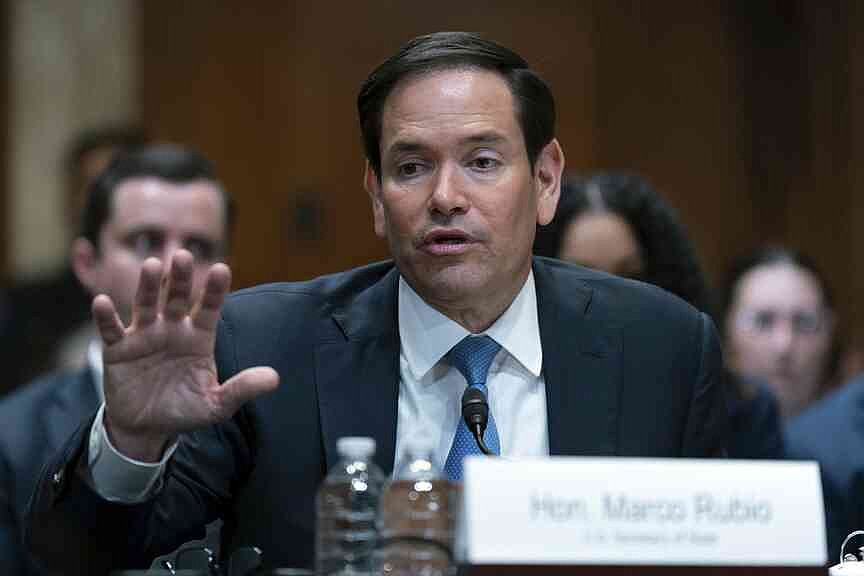WASHINGTON — Secretary of State Marco Rubio and Democratic senators sparred Tuesday over the Trump administration’s foreign policies, ranging from Ukraine and Russia to the Middle East, Latin America, the slashing of the U.S. foreign assistance budget and refugee admissions.
Rubio defended the administration’s decisions to his former colleagues during a Senate Foreign Relations Committee hearing, his first since being confirmed on President Donald Trump’s inauguration day.
He said “America is back” and claimed four months of foreign-policy achievements, even as many of them remain inconclusive. Among them, the resumption of nuclear talks with Iran, efforts to bring Russia and Ukraine into peace talks and efforts to end the war in Gaza between Israel and Hamas.
America’s top diplomat praised agreements with El Salvador and other Latin American countries to accept migrant deportees, saying “secure borders, safe communities and zero tolerance for criminal cartels are once again the guiding principles of our foreign policy.”
He also rejected assertions that massive cuts to his department’s budget would hurt America’s standing abroad. Instead, he said the cuts would actually improve American status and the U.S. reputation internationally.
Democrats, including ranking member Jeanne Shaheen of New Hampshire, Chris Murphy of Connecticut, Tim Kaine of Virginia and Chris Van Hollen of Maryland, took sharp issue with Rubio’s presentation.
Shaheen argued the Trump administration has “eviscerated six decades of foreign-policy investments” and given China openings around the world.
“I urge you to stand up to the extremists of the administration,” Shaheen said. Other Democrats excoriated the administration for its suspension of the refugee admissions program, particularly while allowing white Afrikaners from South Africa to enter the country.
Rubio told the Appropriations Committee that the Trump administration is encouraging but not threatening Israel to resume humanitarian aid shipments into Gaza.
He said the U.S. is not following the lead of several European countries that have imposed sanctions against Israel for the dearth of assistance reaching needy and vulnerable Palestinians. However, he said U.S. officials have stressed in discussions with the Israelis that aid is urgently needed for civilians in Gaza who are suffering during Israel’s military operation against Hamas.
Also on the Middle East, Rubio said the administration has continued to push ahead with attempts to broker a ceasefire in Gaza and to promote stability in Syria.
He stressed the importance of U.S. engagement with Syria, saying that otherwise he fears the interim government there could be weeks or months away from a “potential collapse and a full-scale civil war of epic proportions.”
In two particularly contentious exchanges, Kaine and Van Hollen demanded answers on the decision to suspend overall refugee admissions but to exempt Afrikaners based on what they called “specious” claims that they have been subjected to discrimination by the South African government. Rubio gave no ground.
In one tense exchange, Kaine pressed Rubio to say whether there should be a different refugee policy based on skin color.
“I’m not the one arguing that,” Rubio said. “Apparently, you are, because you don’t like the fact they’re white.”
“The United States has a right to pick and choose who we allow into the United States,” he said. “If there is a subset of people that are easier to vet, who we have a better understanding of who they are and what they’re going to do when they come here, they’re going to receive preference.”
He added: “There are a lot of sad stories around the world, millions and millions of people around the world. It’s heartbreaking, but we cannot assume millions and millions of people around the world. No country can.”
